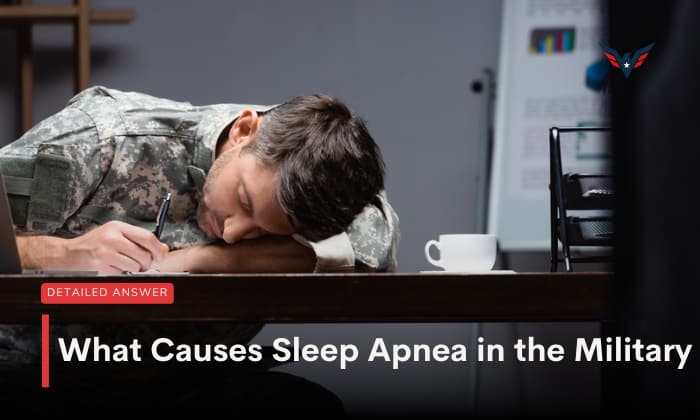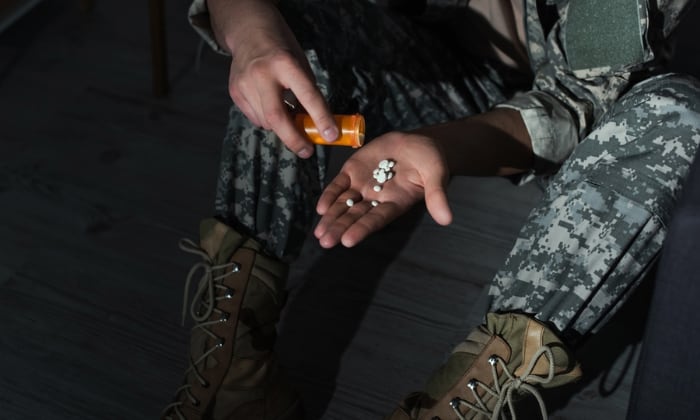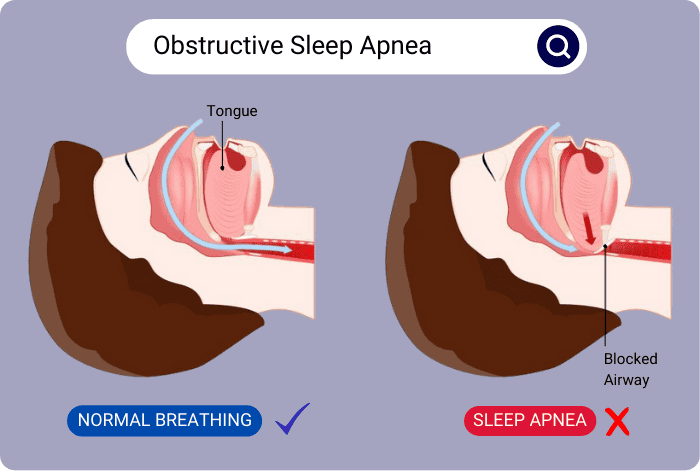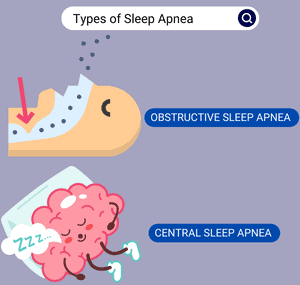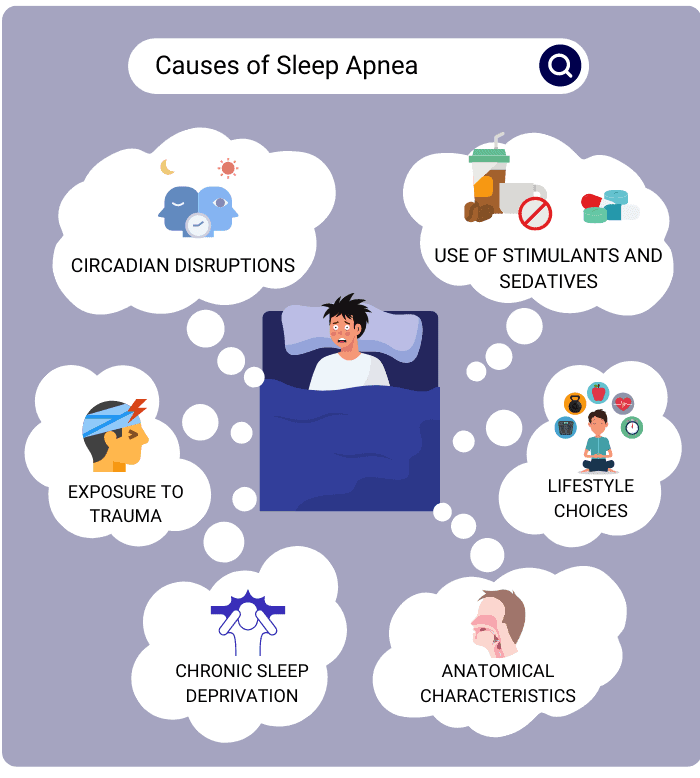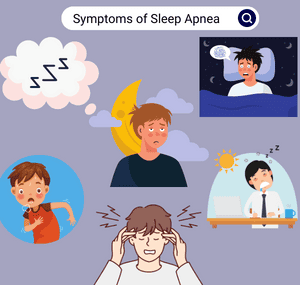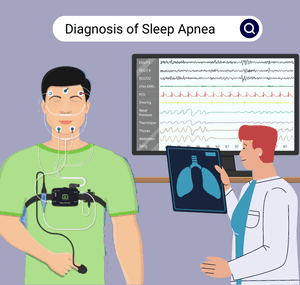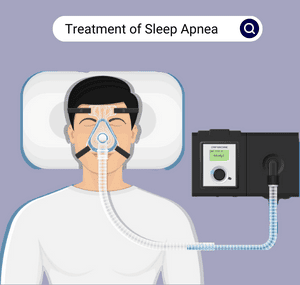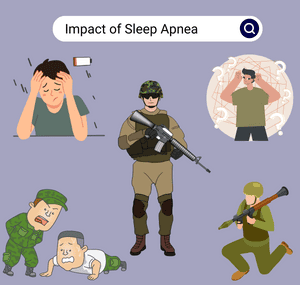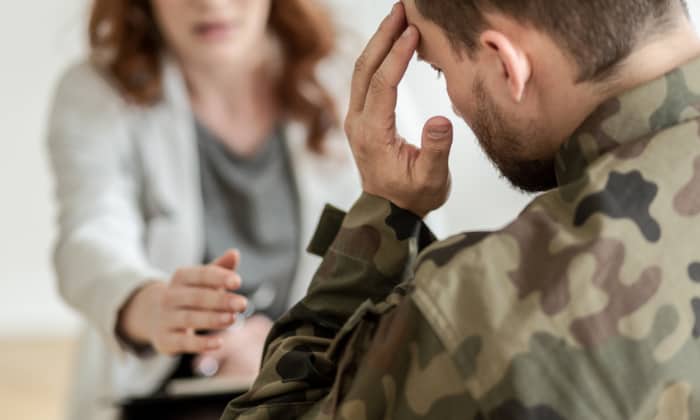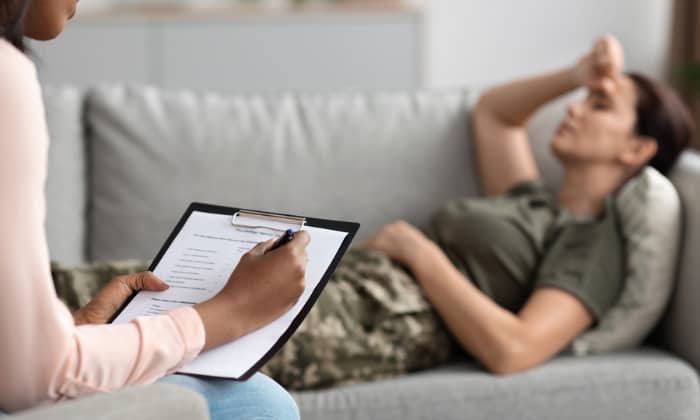Sleep apnea, a common sleep disorder characterized by breathing pauses during sleep, poses a significant challenge within the military community. Understanding the factors contributing to sleep apnea in the military is crucial for effective prevention and management.
Factors such as disturbances in circadian rhythms, alternating use of stimulants and sedatives, exposure to combat and trauma, and chronic sleep deprivation can contribute to the development of sleep apnea in military personnel.
This blog post will answer “What causes sleep apnea in the military?” in more detail, shedding light on the interplay of factors that contribute to this condition.
Table of Contents
What Causes Sleep Apnea in the Military?
As mentioned in the introduction, sleep apnea in the military can be caused by several factors, such as circadian disruptions, the use of stimulants and sedatives, exposure to combat and trauma, and prolonged sleep deprivation.
1. Definition
Sleep apnea is a disorder characterized by periodic pauses in breathing during sleep. It can also manifest in the form of abnormally shallow breathing, often accompanied by snoring and daytime fatigue. It can result in disrupted sleep patterns and potential health complications.
2. Types
There are three main types of sleep apnea:
- Obstructive: The most common one, caused by a blockage or collapse of the airway during sleep.
- Central: A condition where the brain fails to send proper signals to the muscles that control breathing.
- Complex Syndrome: Also known as mixed sleep apnea, it is a combination of both obstructive and central sleep apnea.
3. Causes
Sleep apnea in the military can be attributed to a range of causes, as listed below.
- Circadian Disruptions
Shift work, jet lag from frequent travel across time zones, and irregular sleep schedules can disrupt the body’s natural circadian rhythm, leading to sleep disturbances and an increased risk of apnea.
- Use of Stimulants and Sedatives
Military personnel may frequently alternate between using caffeine to stay awake during duty hours and sedatives to help them catch some sleep when off-duty.
This irregular use of stimulants and sedatives can disrupt sleep patterns and contribute to the development of sleep apnea.
- Exposure to Combat/Trauma
Military personnel may experience high-stress situations, combat exposure, or traumatic events, which can lead to psychological distress and affect sleep quality.
Chronic stress and post-traumatic stress disorder (PTSD) have been linked to an increased risk of sleep apnea.
- Chronic Sleep Deprivation
The demanding nature of military operations often results in chronic sleep deprivation. Insufficient sleep over prolonged periods can disrupt normal breathing patterns during sleep and increase the likelihood of developing sleep apnea.
- Anatomical Characteristics
Certain anatomical characteristics, such as a narrow throat or large tonsils, can increase the likelihood of airway obstruction during sleep.
- Lifestyle Choices
Smoking irritates the airways and can lead to inflammation and an increased risk of sleep apnea. Likewise, excessive alcohol consumption relaxes the throat muscles, making them more prone to collapse during sleep.
4. Symptoms
Sleep apnea is a sleep disorder characterized by symptoms, such as loud snoring, frequent awakenings during sleep, gasping or choking sensations, excessive daytime sleepiness, morning headaches, and difficulty concentrating.
5. Diagnosis
Diagnosing sleep apnea typically involves a comprehensive evaluation by a healthcare professional. This may include a review of medical history, symptoms, and sleep patterns, as well as physical examinations, and sleep studies.
Sleep studies, often conducted in a sleep lab or with portable monitoring devices, keep track of various aspects during sleep, such as airflow, oxygen levels, breathing patterns, and brain activity, to determine the presence and severity of sleep apnea.
By conducting sleep studies and thorough examinations, healthcare providers can accurately diagnose sleep apnea and develop appropriate treatment plans.
6. Treatment
Addressing these risk factors through stress reduction techniques, proper sleep hygiene, and avoidance of smoking and excessive alcohol consumption can help reduce the incidence and severity of sleep apnea in the military.
Seeking medical evaluation and treatment options, such as continuous positive airway pressure therapy with a CPAP machine, oral appliances, and surgical interventions, can also be beneficial in managing sleep apnea among military personnel.
It is essential for military personnel with sleep apnea to consult with their healthcare providers to determine the coverage and potential costs associated with their specific treatment options.
Military healthcare benefits may cover a portion or all of the costs associated with these treatment options, reducing or eliminating out-of-pocket expenses for military personnel. For example, there are CPAP military machines covered by TRICARE.
7. Impact
Sleep apnea can have a significant negative impact on military performance. It can lead to daytime fatigue, impaired cognitive function, decreased alertness, and reduced physical performance, compromising critical tasks and mission readiness.
Treatment and management of sleep apnea are crucial to optimize military personnel’s performance, safety, and overall well-being.
The Connection Between Sleep Apnea & the Military
There are studies that connect sleep apnea to military service, indicating that it is a prevalent health issue among military personnel. The demanding nature of military service, including irregular work schedules, high-stress environments, and physical demands, can contribute to the development and exacerbation of this condition.
The consequences of sleep apnea in the military can be detrimental, impacting performance, safety, and overall readiness. Recognizing and addressing sleep apnea in the military is crucial to ensuring the well-being and operational effectiveness of service members.
Frequently Asked Questions
Can you join the military with sleep apnea?
The eligibility to join the military with sleep apnea can vary depending on the severity and impact of the condition. In some cases, adults with well-managed sleep apnea may be eligible, while others with more severe symptoms or complications may face limitations or disqualification.
It is best to consult with military recruitment authorities and medical professionals for specific guidance on joining the military with sleep apnea.
How do you prove the military caused sleep apnea?
Proving that sleep apnea is caused by military service typically requires medical documentation and evidence linking the condition to specific factors experienced during military service. No matter the symptoms, you must be able to prove that the conditions only developed during service.
Consulting with medical professionals and providing comprehensive medical records are essential in establishing a connection between sleep apnea and military service.
Can you get a profile for sleep apnea in the Army?
Yes, it is possible to obtain an Army sleep apnea profile, which involves a medical evaluation and documentation of the condition to determine the appropriate profile and accommodations for the individual.
Veterans and sleep apnea, can veterans receive VA disability benefits for sleep apnea? If yes, how?
Yes, veterans can receive VA disability benefits for sleep apnea. To be eligible, veterans must provide medical evidence of a current diagnosis of sleep apnea and prove that it was caused by military service.
After confirming that the condition developed after military service, the VA will assign a disability rating based on the severity of the sleep apnea. The disability rating determines the level of compensation the veteran is entitled to receive.
What percent disability is sleep apnea?
Unlike VA rating for insomnia secondary, sleep apnea military disability can be assigned at 0%, 30%, 50%, or 100%. The disability rating is determined based on the severity and its impact on the individual’s daily functioning and overall health.
Causes of sleep apnea in veterans, what is the relation between PTSD and sleep apnea?
There is a known association between PTSD and sleep apnea, as studies have shown that individuals with PTSD are at an increased risk of developing sleep apnea or experiencing worsened sleep apnea symptoms.
Can sleep apnea disqualify you from military service?
Having sleep apnea can potentially discharge an individual from military service, particularly if the condition is severe or uncontrolled, as it may impact their ability to meet the physical and medical standards required for military service.
However, each branch of the military has specific medical standards and criteria, so it is best to consult with military recruitment authorities for the most accurate and up-to-date information regarding disqualification criteria related to sleep apnea.
So, if you’re wondering, “will I have to leave the military because of sleep apnea”, the answer will depend on many factors, such as when you are first diagnosed, how severe the disturbances are, etc.
Is there a connection between agent orange and sleep apnea?
Currently, there is a lack of conclusive scientific evidence establishing a direct association between sleep apnea and exposure to Agent Orange.
Conclusion
Now, you no longer have to wonder about, “What causes sleep apnea in the military?” In summary, sleep apnea is one of the many conditions that personnel in the military may experience, both during and after their service.
The unique circumstances of military life, such as shift work, frequent travel, exposure to combat or trauma, chronic sleep deprivation, and the use of stimulants and sedatives, can contribute to the development or exacerbation of sleep apnea.
It is important for military personnel to be aware of the potential risks and seek proper diagnosis, treatment, and support for sleep apnea to ensure their overall well-being and readiness.

I am Everett Bledsoe, taking on the responsibility of content producer for The Soldiers Project. My purpose in this project is to give honest reviews on the gear utilized and tested over time. Of course, you cannot go wrong when checking out our package of information and guide, too, as they come from reliable sources and years of experience.

